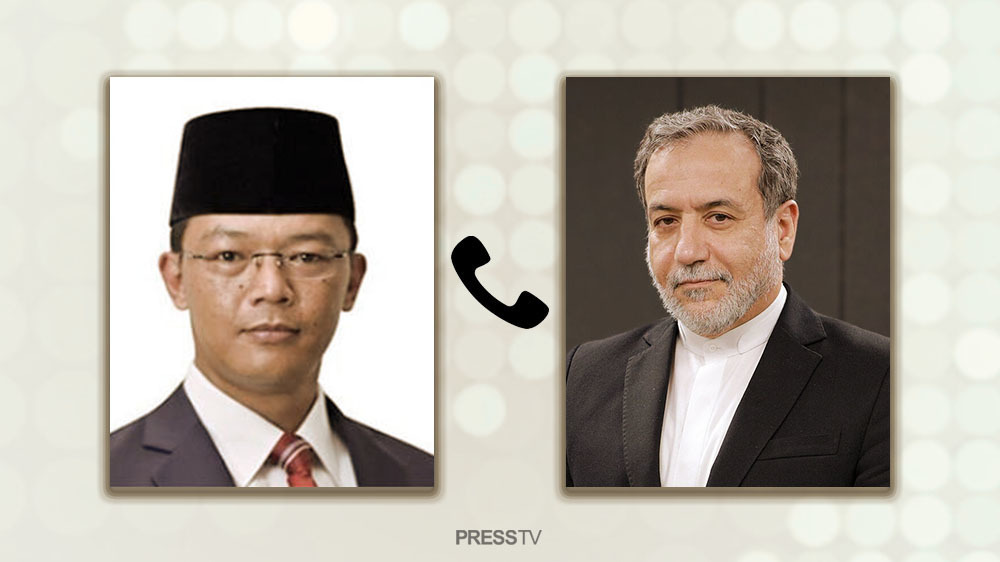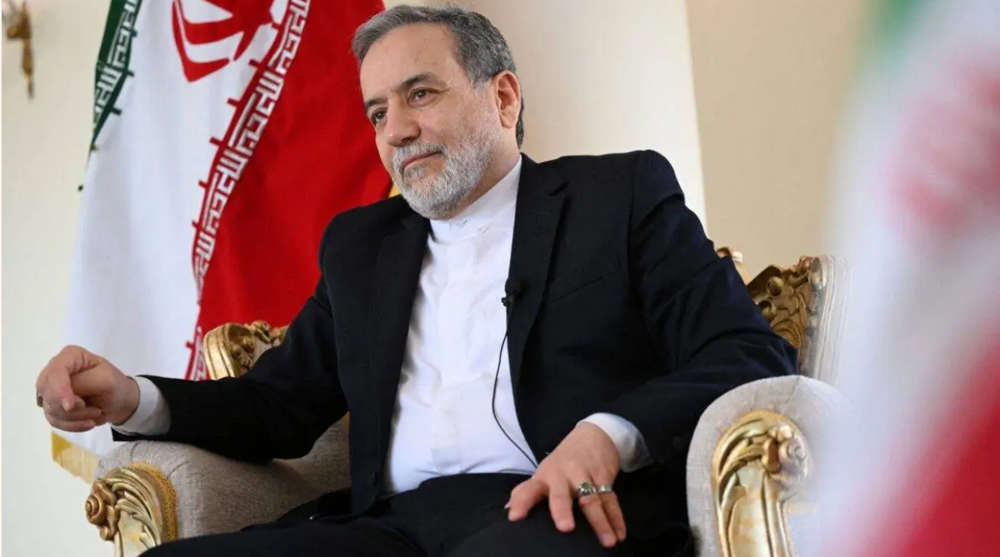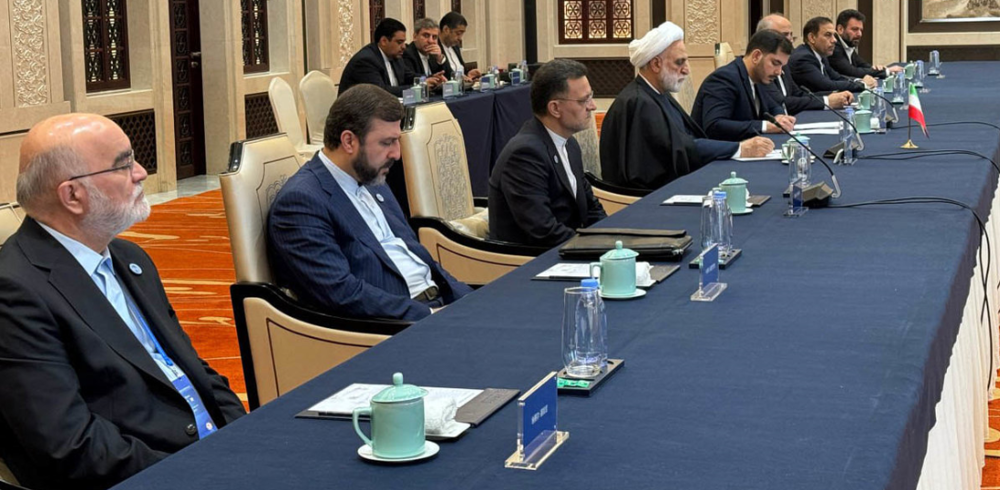US sanctions against Iran make negotiations impossible: Zarif
Iranian Foreign Minister Mohammad Javad Zarif has slammed the United States's latest move to impose a fresh round of sanctions on the Islamic Republic, saying such restrictions would make future negotiations with Tehran impossible.
"They want to make the negotiations impossible... want to make a change impossible," Zarif said in an interview with China Global Television Network (CGTN) published on Sunday, adding, "It's very difficult for (US President Donald Trump) and his successor to remove [sanctions imposed on Iran]."
The US Department of the Treasury announced in a press release on Friday that its Office of Foreign Assets Control (OFAC) had taken action against the Central Bank of Iran (CBI), the National Development Fund of Iran (NDF), and Etemad Tejarate Pars Co. under its counterterrorism authority, after the Trump administration accused Iran of being responsible for last week's Yemeni drone attacks on Saudi oil facilities.
It claimed that the CBI had provided billions of dollars to the Islamic Revolutionary Guards Corps (IRGC), its Quds Force and the Lebanese resistance movement Hezbollah.
Addressing reporters at the White House on the same day, Trump said the new sanctions represent the "highest sanctions ever imposed on a foreign country."
Yemen’s Ansarullah movement and their allies in the Yemeni army deployed as many as 10 drones to bomb Abqaiq and Khurais oil facilities run by the Saudi state-owned oil company Aramco.
The unprecedented attack knocked out more than half of Saudi crude output, or five percent of global supply, prompting Saudi and US officials to claim without any evidence that it probably originated from Iraq or Iran.
The Iranian foreign minister dismissed the US claim, saying Washington seems to be shifting from a failed campaign of “maximum pressure” to one of “maximum lying” and “deceit” against the Islamic Republic.
“US & its clients are stuck in Yemen because of the illusion that weapon superiority will lead to military victory,” said Zarif.
Read more:
- B-Team takes US military as personal mercenary: Iran FM
- US blame game on Saudi oil attack won’t stop Yemenis' response: Iran FM
- US claims about Iran role in Aramco raid 'maximum deceit'
- Iran defends Yemen drone attacks on Saudi oil facilities as 'self-defense'
Elsewhere in his interview with the Chinese TV network, the top Iranian diplomat cast doubt on how effective the new measures would be given that Iran has managed to stabilize its economy following earlier US sanctions.
"Basically, it means that the United States is running out of options. It is desperate. The policy of maximum pressure does not work," Zarif said.
Ever since quitting the landmark 2015 nuclear deal with Iran – known as the Joint Comprehensive Plan of Action (JCPOA) - in May 2018, Trump has been running what he refers to as a "maximum pressure" campaign, which seeks to pressure Iran into negotiating a new deal that addresses its ballistic missile program and regional influence.
Leader of the Islamic Revolution Ayatollah Seyyed Ali Khamenei said on Tuesday that Iran will not engage in negotiations with the United States “at any level,” and that Washington's "maximum pressure" campaign against the Iranian nation has failed to achieve its goals.
Ayatollah Khamenei added that entering talks with the US under the current circumstances would be tantamount to surrendering to Washington's undue pressure campaign, saying, "Negotiating would mean Washington imposing its demands on Tehran. It would also be a manifestation of the victory of America’s maximum pressure campaign.”
Read more:

Indonesia, Iran stress commitment to expanding relations

Iran FM says ready to visit Paris, Berlin, London for diplomacy

Iran elected to chair judicial summit of Shanghai group in 2026
'War is defeat': Pope Francis will be remembered for his moral stand on Gaza
Cases of Esfandiari and Hazamy: France’s quiet war on Muslim, Iranian, pro-Gaza voices
Indonesia, Iran stress commitment to expanding relations
Israel threatens 'larger' war on Gaza with new evacuation orders
Senior diplomats from Iran, Russia, China hold talks with IAEA chief
Two US marines accused of raping Japanese women in Okinawa
VIDEO | Shahin Hazamy arrested primarily for his viral pro-Palestine social media posts: Filmmaker
Houthi: Bab al-Mandab, Arabian Sea closed to Israeli, US ships









 This makes it easy to access the Press TV website
This makes it easy to access the Press TV website